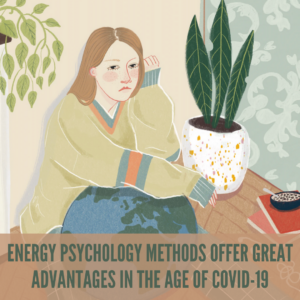Be happy. It feels better!
“Be happy. It feels better!”
This has to be my absolute favorite quote from the Dalai Lama. It certainly is so true—of course it feels better to be happy! But is it really that simple? If we are not committed to happiness, it can be fleeting and difficult to find. And even when we are making happiness a priority (which it really ought to be for a number of reasons), sometimes things go wrong and we get derailed. What’s a happiness-seeker to do?
it can be fleeting and difficult to find. And even when we are making happiness a priority (which it really ought to be for a number of reasons), sometimes things go wrong and we get derailed. What’s a happiness-seeker to do?
- Detach, detach, detach. It can be so much easier said than done, right? But we know that taking the long view is a key to maintaining inner peace. Our pain comes not from the event but our resistance to it. As my dad said to me a few years ago when I was upset, “these things have a way of working themselves out.” How often do we look back and, as the Garth Brooks song goes, “thank God for unanswered prayers?” We have all let go of important—really, really important—things. And as time goes by, we realize life moves on and we can indeed still be happy. When life gets you down, remember this.
- Put a smile on. Even a fake one. Seriously. A researcher in Japan did a study in which he put people’s faces into a smile or a frown using rubber bands and plastic bandages. Sure enough, the “smilers” became happier and the frowners got unhappier. Smile on!
- Regular exercise has been shown to boost not just our metabolism and strength, but our moods as well. Find a type of exercise you like and commit to it. Find a buddy to work out with, sign up for an exercise or yoga class, or set yourself an alarm to hit the pavement or the clothes rack –umm, treadmill. Just do it!
- Be friendly. Social engagement boosts happiness and is a great anti-depressant. We humans are communal creatures and do better in society yet modern culture often separates us from our pack. Get out there and mingle.
- You’ve heard it here before. Meditation boosts happiness and a whole host of physiological markers of happiness. Disconnecting from our busy thoughts and emotions and returning to our center, which is a wellspring of peace and happiness, takes practice. In fact, it is a practice. We need to be patient with ourselves and get to work with that practice.
These are my top five go-to ways to stay more peaceful and happy. I should point out, of course, that happiness doesn’t come from pleasure-seeking; it comes from things like authenticity, productivity, and service. When our work and relationships are satisfying and affirming, and our spiritual life is rich, happiness unfolds in wonderful ways.
What are your favorite ways to stay happy? I’d love to hear from you!
Energy Psychology in the Age of Covid-19: What does the research say?
 We are living in unprecedented times, as the world grapples with the covid19 pandemic. Many people are experiencing fear and worry about catching the virus and getting sick. Televisions across the world beam images of overcrowded hospitals and overburdened healthcare professionals. There is a real concern that necessary equipment is not, and will not be, available to protect and care for those in need. Meanwhile, many countries are addressing the pandemic by instituting lockdowns, keeping people in physical isolation. The impact on social and economic life is profound. The need for mental healthcare is growing.
We are living in unprecedented times, as the world grapples with the covid19 pandemic. Many people are experiencing fear and worry about catching the virus and getting sick. Televisions across the world beam images of overcrowded hospitals and overburdened healthcare professionals. There is a real concern that necessary equipment is not, and will not be, available to protect and care for those in need. Meanwhile, many countries are addressing the pandemic by instituting lockdowns, keeping people in physical isolation. The impact on social and economic life is profound. The need for mental healthcare is growing.
Energy psychology practitioners are uniquely positioned to help. Research demonstrates, time and again, that energy psychology methods can very effectively address anxiety, depression, and posttraumatic stress. Even more strikingly, recent research suggests that energy psychology can boost our immunity, and thus may help keep us from getting sick.
Online Delivery
The world is stressed, distressed ― and online. Energy psychology practitioners are used to helping clients manage anxiety and stress. Thanks to technology, we are able to deliver our services online. The question arises: Are online energy psychology sessions effective?
The first research study looking at this says yes, at least for Emotional Freedom Techniques (EFT). Peta Stapleton and her colleagues recently published a study showing that EFT delivered on-line was effective in helping clients lose weight and decrease food cravings. You can read more about that study here.
Energy Psychology for Anxiety
The increase in anxiety is making it plain to many people how valuable emotional health can be. There is a real need for efficient tools that address anxiety. Energy psychology has a great track record. But we don’t want to be partisan, so it’s a good idea to look again at the research.
In 2015, Morgan Cloud, MD, PhD, published a meta-analysis of studies examining the effectiveness of EFT for anxiety. People who received EFT treatment demonstrated a significant decrease in anxiety and outperformed the various control treatments. The effect size for EFT was 1.23, whereas the combined effect size for the control groups was .41. (To put this in context, 0.8 is a large effect size, which basically means that EFT had a very large impact on participants.)
Energy Psychology for Posttraumatic Stress
Many people may be experiencing posttraumatic stress during these times, particularly those on the front lines. Energy psychology, especially Thought Field Therapy (TFT) and Emotional Freedom Techniques (EFT), have a great clinical track record in treating posttraumatic stress.
There is a growing body of research to support energy psychology. Enough research, in fact, that in 2017, Sebastian and Nelms published a meta-analysis of studies of the effectiveness of EFT to treat PTSD. The analysis found that EFT was effective in relieving symptoms of PTSD in as little as four, and up to ten, sessions. The analysis included seven randomized controlled trials and found an eye-popping effect size of 2.96 among the studies that compared EFT to the waitlist or standard care.
Energy Psychology Methods May Boost Immunity
As the world reacts to the pandemic, almost everyone is interested in ways to boost our immune systems. Mind-body methods are gaining acceptance in the West, as more research shows that they are effective. People are increasingly aware, for example, that meditation can increase immune function. What does the research show about energy psychology?
Recent research suggests that EFT can have a positive effect on our immune system function. Several studies show that EFT reduces cortisol levels. One study showed that EFT catalyzes gene expression to boost immune function. A recent study measured physiological markers of more than 400 participants using EFT and found that they had significant declines in anxiety, depression, PTSD, pain, and cravings, as well as a boost in happiness. They also had increased salivary immunoglobin, a marker of immune function, and decreased cortisol, which is a stress hormone that suppresses the immune system.
You may have noticed that most of the research I mention here is focused on EFT and TFT. While there are many more methods that make up the family of energy psychology, most of the research to date has focused on these two methods.
You can access comprehensive bibliographies of the research on the ACEP website’s research section. It is updated at least once a year.
Bottom Line
Energy psychology methods offer some great advantages. Effective during sessions, they can also be used as self-help tools. This means that our clients can use these tools themselves between sessions, which is empowering. Energy psychology methods also offer fast results, and the results are durable. Energy psychology methods are flexible in delivery. They can be delivered one-to-one, in groups, in workshops, and online. They are safe and have no side effects. They are cost-effective. Best of all, they are highly effective. They are becoming more and more popular all the time ― with good reason!
Guided Meditation
 I love my job. When Jane (not her real name) came into the office today, she seemed a little agitated. As she brought me up to speed on what had happened since our last visit, she told the story of overwhelm: too much to do, not enough time to get it all done. She said she felt literally and figuratively out of balance and that was only part of the problem. She began to cry as she said that she was tired of living with fear. It was clear that she needed healing.
I love my job. When Jane (not her real name) came into the office today, she seemed a little agitated. As she brought me up to speed on what had happened since our last visit, she told the story of overwhelm: too much to do, not enough time to get it all done. She said she felt literally and figuratively out of balance and that was only part of the problem. She began to cry as she said that she was tired of living with fear. It was clear that she needed healing.
I love using guided meditation with clients. We are able to make a lot of progress in a little bit of time. Today, I guided Jane into a meditative state which set the stage for her conscious connection with her Higher Self. We cleared her mental, emotional, and physical bodies. Then, one by one, we dissolved blocks: trauma, fear, sadness, and vulnerability melted away.
When my clients are meditating with me, I can feel their energy move and often see color changes in the energy around their bodies. Love that. I would never have believed this was possible if it hadn’t happened—but it happens. Today, as these blocks were being released, I could feel the energy spinning in a slightly dizzying way. I could also actually see Jane’s energy getting lighter and brighter as we went along.
After our big clearing exercise, we connected Jane to her inner yin and yang qualities, or inner male and female selves (we all have both). This is one of the things I love best to do with my clients because it is so helpful. Today, as soon as we connected to Jane’s male self, I felt an incredible heat as the energy flowed. Her male self wanted more organization; her female self wanted more self-care and meditation. She made adjustments and agreements and visualized herself getting these things in place.
I love seeing my clients getting happier. By the end of our session, Jane’s entire demeanor had changed. Her color was brighter, she was more calm and relaxed, and she had a plan. As we reflected on the work, Jane told me that she also had felt heaviness being cleared away, and made a motion of her hands pushing out from her heart. She had come into the office stressed, tired, and “crooked” inside. She walked out empowered, relaxed, and energized, and in alignment.
I love my job.
PS. Every Monday I offer the best free guided meditation.
Change how memories feel using EFT
"I remember but I don't feel upset": How energy psychology facilitates memory reconsolidation
One of the best things about being an energy psychology practitioner is seeing that look of wonder in our clients' eyes when their traumatic memories are no longer traumatic. Tapping lets us change how memories feel.
"I remember it, but I don't feel upset about it," they say.
It's the kind of experience that makes this profession so rewarding.
I remember one instance in particular. A client was working on a childhood trauma. He was in tears ― lots of them ― before we even started working. When I asked him to rate his distress on a scale of 0-10, he said it was 100. He looked as if he were telling the truth.
We began working. If you practice energy psychology, you know the drill: We tapped, and down the rating went: 10 to 6, 6 to 3, 3 to 0 or 1. At the end of the hour, and the end of the story, we arrived at a wide-eyed, "How-did-this-happen, I-remember-but-I-don't-feel-upset, it's-a-ZERO!!"
Months later, I asked my client how he felt about the issue. He looked at me with surprise. "You know, I don't think about it. I remember it happened but it doesn't bother me."
Memory reconsolidation
How did this happen? Why didn't the trauma response come back? A part of the answer, at least, has to do with memory reconsolidation.
Neuroscientists used to think that once something was encoded into long –term memory, it was there for good. The emotions associated with a memory were permanent. Or so it seemed.
In the late 1990's, researchers began studying memory reconsolidation. It turns out, thank goodness, that memories are changeable. When memories are activated ―when we remember― the memory becomes labile. In that state, it can be changed, or reconsolidated. When a memory is reconsolidated, the uncomfortable emotions associated with it can be erased.
Researchers and theoreticians disagree about the exact requirements for memory reconsolidation to occur. However, they have identified three key ingredients:
1. Vividly remember
2. Change the internal physiology or juxtapose a contradictory experience
3. Repeat
Extinction vs. Reconsolidation
Most anxiety therapies offer, at best, "extinction." Yet extinction is really a misnomer. Like the salivation response of Pavlov's dogs after "extinction", so too with extinction-oriented therapy: anxiety-provoking memories, and their flood of feelings, can come back unbidden at any time.
Memory reconsolidation is something different: an elimination of the anxiety associated with a previously disturbing memory. As my client's experience illustrates, a traumatic memory can be reconsolidated so that it no longer triggers a trauma response.
Memory reconsolidation and energy psychology
In his 2015 article, David Feinstein explained energy psychology tapping in terms of memory reconsolidation. His article is worth a read; the link is here.
Meridian tapping changes our internal physiology. Studies show that tapping on meridian points changes body chemistry and brain activity:
• A recent study using functional magnetic resonance imaging (fMRI) showed deactivation in limbic regions following tapping.
• A 2009 study, using electroencephalogram (EEG), demonstrated healthy changes in brainwave patterns after trauma treatment with energy psychology.
• A 2012 study showed energy psychology reduces levels of salivary cortisol.
When we do energy psychology tapping, we ask our clients to activate the memory. While they do that, they are tapping on meridian points. Our clients are simultaneously activating a troubling memory and calming their internal physiology.
Energy psychology is a good way to facilitate memory reconsolidation; memory reconsolidation is a good model to explain how energy psychology works. No matter how you look at it, energy psychology helps our clients heal old wounds and feel better about themselves.
Biography, Biology, and Destiny: How Energy Psychology Can Break The Chain
(Originally published on ACEPblog.org)
Diabetes. Depression. Heart disease. Asthma. Addiction. Cancer. What common denominator increases the likelihood of developing any of these conditions?
Adverse childhood experiences, or ACEs.
According to the CDC, ACEs are associated with an increased risk for mental and physical health problems across the lifespan. Childhood trauma (the biography) seems to affect our brains, nervous systems, and biochemistry (biology), which in turn increases the risk of psychological issues and serious illness (destiny).
ACES are a HUGE public health issue. Since 1998, when Vincent Felitti and his colleagues published the seminal ACE study that revealed the health risks associated with childhood trauma, much public health focus has been on prevention. Prevention is a great idea. But can we do anything for those who have already had ACEs?
With its track record of helping people recover from trauma, perhaps energy psychology has a key role to play in helping people heal from the effects of childhood trauma.
ACEs and Health
The problem of ACEs has gained widespread attention in recent years. The CDC estimates that if we prevented ACEs, we could eliminate 21 million cases of depression, nearly two million cases of heart disease, and 2.5 million cases of overweight/obesity. We would save millions of dollars in healthcare costs every year.
Sixty-one percent of American adults have experienced at least one adverse childhood experience. Sadly, 16% of us have experienced four or more ACEs. This is important because four is the critical number of ACEs that takes a serious toll on wellbeing and health.
For example, an ACE score of four or more…
- Is associated with a 390% increase in the likelihood of developing chronic obstructive pulmonary disease (COPD).
- Is associated with a 460% increase in the likelihood of developing depression.
- Increases suicide risk by 1,220%.
- An ACE Score of six or more is associated with a decreased life span of 20 years.
ACEs and Biography
There are three main categories of ACEs, and each category contains several types.
Abuse: Physical, Emotional, Sexual
Neglect: Physical, Emotional
Household Challenges: Intimate Partner Violence, Mental Illness, Divorce, Substance Abuse, Incarcerated Relative
Children of different races have different incident rates of adverse childhood experiences. According to the Child Trends brief of the 2016 National Survey of Children’s Health, the highest incidence of ACEs is among Black non-Hispanic Americans (61%) followed by Hispanic Americans (51%); 40% of White non-Hispanic Americans experience ACEs, and 23% of Asian Americans.
Biography Becomes Biology
Chronic exposure to stress during childhood can change our physiology, including changing cortisol levels, immune function, and inflammation. The effects on the developing brain can be serious and can include changes to the amygdala (associated with visceral emotion), hippocampus (associated with memory), and prefrontal cortex (associated with higher reasoning and impulse control).
Adverse childhood experiences can also affect social functioning. Children growing up in chaotic environments tend to have difficulty forming and maintaining friendships and may act out with aggression and bullying. Early childhood issues can affect career, relationships and family life, and may have a negative impact on financial wellbeing. People with high ACE scores tend to have problems with emotion regulation and to experience themselves as unworthy, helpless, or incompetent.
Moreover, ACEs are linked with unhealthy and risky behaviors. Attempting to self-regulate, people with high ACE scores tend to smoke, drink excessively and abuse other drugs, engage in risky sexual behaviors, overeat and be sedentary.
Following these pathways, biology can become destiny. The literature on ACEs tells us that ACEs “permanently affect” our physical, emotional, and mental health.
But what if the damage is not permanent?
Biology Does Not Have to Become Destiny
While much public health focus has been on preventing ACEs ― and clearly we should ― the question of healing ACEs also needs attention. Energy psychology, in particular Thought Field Therapy (TFT) and Emotional Freedom Techniques (EFT), has a long history of helping people heal trauma.
For example, a 2017 meta-analysis found that EFT is exceptionally effective in treating PTSD. Widely used in social science, meta-analyses are statistical studies that combine the results of many individual studies to determine the overall effectiveness of treatment. This meta-analysis included seven controlled trials and found that EFT had a very large positive effect on participants across all studies of 2.96 as measured by a weighted Cohen’s d. An effect size of 0.8 is considered large. This shows that EFT is very effective at treating PTSD.
Furthermore, a 2006 study using TFT to treat PTSD among teenagers who had survived the Rwandan genocide found that a single session of TFT provided relief. The 50 adolescents treated in the study had been suffering with PTSD symptoms including flashbacks, nightmares, jumpiness, aggression, and difficulty concentrating. The symptoms reduced dramatically, to subclinical levels, after a single session of 20-60 minutes of TFT, and the gains held at one-year follow-up.
These examples remind us how powerful energy psychology can be. It is possible that a widespread use of energy psychology methods could mitigate the effects of childhood adversity and help heal the effects of ACEs. The research, as well as the clinical experience of many professionals, show great promise in this direction.
That is something to be hopeful about indeed.
Nine strategies to manage stress during the corona virus
These times are unprecedented. As the novel corona virus is spreading, so are fear and anxiety. While technology is connecting us to the larger world, physical distancing is keeping us away from our neighbors. We have reason to be concerned for both our health and our economic wellbeing. If the corona virus lockdown is getting to you, you are not alone. This is a time to ramp up our self-care and boost our resilience. These strategies can help you manage stress during the corona virus lockdown:
Limit your intake of media.
We all want and need to be informed, but spending too much time watching the news or reading your Twitter feed can make even the most resilient of us feel anxious. Choose a time boundary for your media intake, and stick with it.
Stay connected.
Physical distancing does not mean social isolation. Virtual happy hours, sing-alongs, and dance parties are fun ways to connect to your people. Now is a great time to phone a friend: AT&T reported a doubling of phone calls over the last few weeks.
Laugh.
One of the easiest ways to "break the state" of anxiety is to laugh. Thanks to Spotify and YouTube, there are loads of comedians to listen to or watch. I love Demetri Martin, and my sons recently introduced me to Nate Bargatze. I laughed till it hurt.
Listen to uplifting music.
Music is another great way to "break the state". It's hard to stay anxious or sad when we are listening to fun, upbeat music. There are many interesting collaborations on YouTube, like Berklee College of music students, Nashville backup singers, and these teens.
Spend time in nature.
Stay away from others and obey park closures, but go outside when you can. There's nothing like the natural world to soothe our soul and lift our spirits.
Move your body.
Dance, practice yoga, learn T'ai Chi. Dust off your treadmill, pull out your dumbbells. Try pushups and sit-ups. Make it a pro-social behavior by joining your favorite fitness or yoga studio's online classes.
Remember to be mindful.
When we are in the present moment, we are better able to stay peaceful. Most of our upsets come from thoughts about the future or the past. To counter that, keep coming back to right here, right now. After becoming "awake," the Buddha shared the secret with the children in his community: "When you are eating the tangerine," he said, "eat the tangerine." One helpful way to come back is the 5-4-3-2-1 technique: Find 5 things you can see, four you can feel, three you can hear, two you can smell, and one you can taste. Maybe a tangerine.
Meditate.
There are gobs of guided meditations on the web, including some of mine. Find some you like, and listen to them regularly. If you are more inclined to a silent, solo practice, now is a great time to get to it. Find a style that works for you: focus on your breath, or bodily sensations; witness your thoughts; repeat a mantram; or concentrate on a high-level concept. You can meditate sitting, standing, walking, or lying down. Take some time to explore, and find out what works best for you.
Find a way to be helpful.
Alfred Adler, one of the founders of psychology, advised his patients who were suffering with depression to think about how they could help someone. "How can I possibly help anyone, I am so miserable," they would often reply. "I'm not saying you have to actually do it; just think about it," he would reply. He was on to something. However, for the corona virus problem, let's not just think about helping! There are many ways to be of service, including sharing facts when there's so much misinformation; making masks; supporting local businesses; and talking friends off the ledge, are all ways to be of service. And they offer a win-win-win: When we help others, we also are helping ourselves, and helping our communities.
These strategies can help you manage stress during the corona virus lockdown. How are they working? I'd love to hear from you!
How to say no
Getting to "no"
I was talking with a friend of mine this morning. She has invited me to collaborate with her on a project. As we talked, she said, "I'm afraid I'm asking too much." I told her that if it were too much for me, I would say no. “Asking is not the same as telling a person to do something," I sagely added. We both cracked up. And realized how seldom people remember this. Learning how to say no is a lesson that often comes up in client sessions, and in life.
Ask, and it is (sometimes) given. And sometimes not.
Over on the other side of this equation, I have almost lost friendships over this issue. Once, a friend asked me to do her a favor. I could not, so I told her that I could not. She was clearly annoyed with me, and I did not hear from her again for months.
This theme runs through my practice. Often clients are afraid to ask for things. They are afraid of how their request will land with the person they are asking.
I always advise clients to remember that "no" is always a valid answer. When people ask something of you, you can say no. When you ask someone to do something for you, remember that they have the right to say no. It seems so simple, but like so many things, can be difficult to execute.
Learn to say no, and you practice setting boundaries
I think that it is helpful to think of this as a boundary issue. We all do better when we know what our limits are, what is healthy for us, where our "no" is. We are ultimately responsible for ourselves, and for taking care of ourselves. That includes setting limits, and saying no.
We can also think of this as a healthy use of our throat chakra. When we are clear that "no" is an acceptable answer, we are able to speak our truth, kindly and clearly. How the listener receives our words is not really our responsibility. We are, however, completely responsible for how we communicate.
The path of non-resentment begins with "no"
Very often, people who have said "yes" when they wanted to say "no" carry resentment. This begins to erode the trust in the relationship. Sadly, the person to whom they have said their inauthentic "yes" has no idea that there is any resentment. Moreover, the resentment often erupts like Mt. Vesuvius, leaving a path of destruction in its wake. This further erodes the trust in a relationship.
It is a far better practice to work at speaking the truth, holding our boundaries, and getting comfortable with "no." Learning how to say no is liberating, and creates more harmony within ourselves and in our relationships. In fact, it is a practice that just might save your relationships.
Want to lose weight? Try EFT. The research is in.
Want to lose weight? Try EFT.
People who are overweight generally know what to do. Eat less, eat better, exercise more. Pretty simple, right? So why does it so often feel simply impossible? As with so many human problems, we know better, but we don't seem to be able to do better. Fortunately, there are solutions. One comes from energy psychology: EFT helps with weight loss.
There are many factors that have very little to do with knowledge that lead us to the sleeve of Girl Scout cookies. Or the bag of chips. The pint of Americone Dream. The drive-through window.
I've often observed that if we all could get our feelings to line up with what we know, hardly anyone would have a problem. It seems to me that we usually are pretty smart about things. Our problems, therefore, are not usually problems of information. They are problems of emotion, of energy, of habit.
They are problems for which the world of energy psychology offers solutions.
An overweight world
If you are dealing with weight issues, you are not alone. The rates of overweight and obesity around the world continue to climb. A New England Journal of Medicine report shows that the rate of obesity worldwide has doubled since 1980, affecting 5% of children and 12% of adults. In the US, researchers project that half of adults will have obesity by 2030.
We at ACEP are body-positive. As mental health and health practitioners, we want our clients to feel good in whatever body they have. However, we must also acknowledge the health effects of obesity and overweight: increased risk of type 2 diabetes, kidney disease, hypertension, cardiovascular risk, certain cancers, other chronic conditions, as well as more depression and anxiety. Worldwide, overweight and obesity contributed to 4 million deaths in 2015.
By profession, by vocation, by calling, we are helpers. And so, we have been watching with great interest the work of Peta Stapleton and her colleagues, who have been using EFT to treat weight problems. We’re proud that she’s an ACEP member.
EFT can help you lose weight – the research
Stapleton is a world-renowned researcher who focuses on clinical applications of EFT "tapping" therapy. (You can read more about EFT here.) Stapleton has authored several books on ways to use EFT. She has conducted groundbreaking research on EFT for health, wellbeing, depression and anxiety, trauma, and weight issues, including food cravings. Stapleton's latest work focused on internet delivery of an eight-week program of EFT for weight loss.
The internet, despite its flaws and limitations, is becoming a valuable tool for delivering health and mental health services. This study examined whether on-line delivery of EFT for psychological symptoms, food cravings and consumption of craved foods, and weight management, would work.
It does.
Nearly 1,000 people from around the world signed up to participate in the eight-week study. After the usual attrition, more than 500 people ― mostly women, by a 9:1 ratio― joined the study. They were randomly placed into an EFT treatment group (314) and a no-treatment control group (228).
Participants in the study reported their height and weight, so researchers could calculate their BMI. They also reported their food cravings; power of food (how hard it was to resist when, say, they walked across a crowded pizza shop); restraint (a kind of "chronic dieting", which is an indication of disordered eating); and their levels of depression, anxiety, and physiological symptoms (like headaches).
People who got eight weeks of EFT delivered to their laptops and smart-phones lost weight. Their food cravings went down remarkably, they felt less controlled by food, and they exhibited less dietary restraint. They also had fewer aches and pains, as well as less depression and anxiety. Perhaps best of all, though only 20% of the participants kept tapping after the eight weeks, they all maintained their weight losses a year after the study concluded.
Making it real
EFT and other forms of energy psychology have gained popularity over the past couple of decades. More people in the West are open to an Eastern paradigm, which is one of the theoretical underpinnings of energy psychology.
Many of us remain skeptical but open to evidence. The research is clear in study after study: EFT works. In this case, it can help people lose weight and maintain their weight loss. It helps reduce food cravings and helps people feel less overpowered by food. It eases up on restricted eating and the boomerang that often accompanies it. It does all this while addressing depression, anxiety, and physiological symptoms.
If you, a client, or a loved one is interested in getting more information about using EFT for weight loss, consider on-line EFT delivered by naturallythinyou.com, or look up ACEP to find a list of qualified practitioners.
You can learn more about Peta Stapleton’s decade of research on EFT and weight loss at ACEP’s 22nd International Energy Psychology Conference, where she is an invited presenter. Energypsychologyconference.org
Why do couples argue?
Couples often think their partner's behavior makes them upset. They believe they argue because their partner won't just do the right thing. In reality, it's not that our partner's behavior is the problem. It is the meaning we make of it, and the way we communicate about it, that causes arguments. This means that it is always a good idea to step back and ask ourselves, "What is this really about? What is my vulnerability here? Why am I arguing with my partner?"
Why do couples argue? It is all about the meaning we make.
It's not really the behavior that is upsetting; it's the meaning we attribute to it. And when we can get clear about this, and reflect on why we are upset and what meaning we are making of it, we are on our way to taking responsibility for our own feelings, and reactions.
Take for example the kitchen.
A young couple I've worked with recently has had an ongoing conflict about their division of labor. Their dynamic perfectly illustrates the conflict cycle that so many couples deal with.
Every evening, the wife (I'll call her Sally) bathes baby while the husband (let's call him Bobby) cleans up the kitchen. Routinely, Bobby forgets to wipe down the counter. Routinely, Sally enters the kitchen to find the job not done. It makes her crazy.
"Why do you always do this?," she demands. "Why can't you finish the job? Do you expect me to do everything? I can't count on you."
Unsurprisingly, Bobby takes offense. He feels defeated, like he can never do anything right -- at least in Sally's eyes. He decides her standards are too high.
"Why can't we just leave the counter alone? Why are you so picky? Your standards are unreasonable," he complains.
Unfortunately, the couple then begin to debate who has the "right" standards, who is "right" and "wrong" about wiping down the counters. She feels like she's living with another child. He feels like he's married to his boss, or his mother.
There's no romance. They are driving a wedge in their relationship and further tearing at the bond of trust that once bound them. Neither feels safe.
They are having the wrong conversation.
Instead of the chores, they need to shift to the meaning of the chores. What does the conflict about the chores represent? When they've identified the meaning behind the conflict, they can partner together to solve their problem and restore their trust and connection.
I turn to Sally. "What is the significance of the chores?," I ask. She explains that she's a feminist. Her parents had a very inegalitarian marriage and she is afraid that she'll end up like her mom. She does not want her son to grow up in such a household. Moreover, since she's explained herself to Bobby, she thinks that his carelessness is a symptom of his disregard for her and her feelings.
I turn to Bobby. "How does it feel for you to talk about this issue," I ask him. He feels shamed, helpless, hopeless. He forgot to wipe down the table, and he just knew she was going to get into an argument about it. And here they were, talking about chores for the umpteenth time.
I gently remind Sally to just listen, and not defend herself. Sally hears that Bobby feels defeated about this. Bobby hears that for Sally, chores represent something personal to her, about her.
I remind them that when they are arguing about the facts of the case, they are having the wrong conversation. This type of (typical) couples' argument pus them in a zero-sum game. They are pitting themselves against each other.
Your partner can be the person who makes you feel safe in the world, but they can't do that if you are enemies.
The conversation goes the way it starts
Sally softens, and feels some connection with Bobby after hearing about how defeated he feels about the whole situation. She turns her complaint into a request.
"Bobby," she says, "When you leave the counters dirty, I feel like you don't care about how important an equal partnership is to me. I am not saying that you actually think this, but I wonder if you care. I am grateful for all the work you do. And it would mean a lot to me if you'd wipe down the counters when you clean up the kitchen. Would you do that?"
Bobby feels relieved. It's nice to know that she doesn't think he's a total slacker. He feels respected. He says he'll wipe down the counters, and asks her to kindly remind him, and let him take care of it, if he should ever get distracted and forget.
We talk about the importance of a gentle start-up when we have an issue to raise with our partner; research shows that conversations tend to go in the same way they start. We talk about the value of making a simple request when we have a complaint; it leads to less defensiveness, and we put ourselves in problem-solver mode. We talk about the benefits that come from discussing issues like this in a neutral time, rather than in the heat of the moment.
Realizing why couples argue lets us turn it around.
If you are experiencing conflict in your relationship, try taking time for self-reflection before you talk. Ask yourself “Why exactly am I upset? What does this mean to me? What do I want to ask my partner?”
Then choose a neutral time to bring the topic up. When we ask ourselves why do couples argue, or why am I arguing with my partner, it is always a good idea to look at the meaning we make of it. You can read more about this approach to conflict here.
With practice, you can learn to make your relationship the safe harbor it can be. And both of you will be better for it!
A Sense of Belonging at the Super Bowl
This Sunday, almost 100 million people will tune in to watch the Super Bowl. Many will have too much to drink. Almost all will have too much to eat. Presumably, about half will be disappointed in the result. All will have the chance to feel a sense of belonging.
Most of the time, we watch with others who support the same team. This brings us a sense of connection and camaraderie. And woe to those who are watching with people who support the rival team. They become strangers in a strange land.
Military by proxy
The military overtones of football have always intrigued me. As spectators, we feel a kind of kinship with our would-be brothers-in-arms by proxy. I always imagine football coaches as reincarnated military generals, plotting offense and defense, anticipating the enemy's move.
In football, of course, nobody dies. We have come a long way since the ancient days of arena sports. We don't watch gladiators fight to the death. Lacrosse teams do not actually get slaughtered (only sometimes metaphorically). Yet the stakes feel incredibly high.
The thrill of the game
For those of us who tune in for the sport (not the commercials, or the halftime show), spectatorship can bring a kind of thrill. When we care about the game, our adrenaline spikes. Our team gets ahead, we have a little flow of endorphins. Our team falls behind, and cortisol surges. It's a kind of torture, willingly undertaken.
I remember shouting from the sidelines when my kids played football. Never before would I have imagined I would yell, "Get him!" about another 9-year-old. And yet, that's what I yelled. And wondered who I had become, and what had become of me?
A sense of belonging
This weekend as I settle in to watch the Super Bowl, I will relax knowing that this time, I really don't care about the result. I don't have any skin in the game. And so I will also be watching the people watching. I can feel their thrill and their pain. I know what it is like to care.
And to shout "Get him!" about another human being.
And wonder at the sense of belonging we feel when we are banded against an Other.
On Sunday, I will be glad that it is really only about football, after all.








